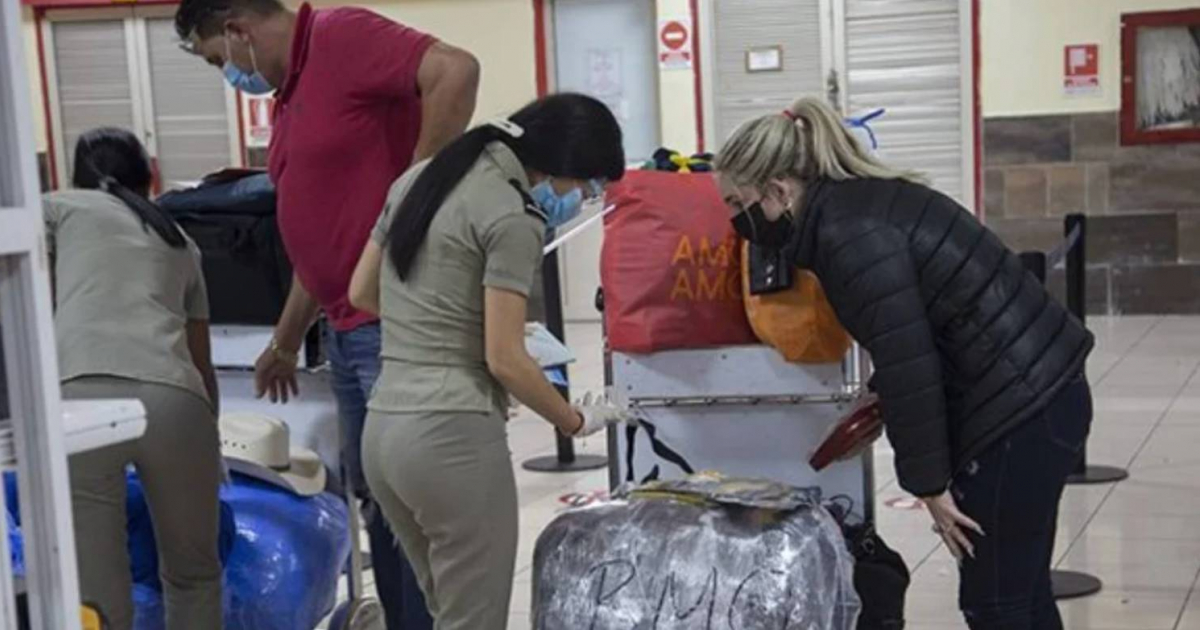The Cuban regime has enacted a modification to Decree-Law 22 of 2020, mandating the payment of tariffs in U.S. dollars for certain non-commercial imports. Effective from January 1, this measure brings noteworthy changes to import policies for travelers, as outlined in Decree-Law 101, published in the Official Gazette. These alterations primarily influence the payment conditions for customs duties, the methods of calculation, and the currency accepted for tariff payments.
The updated decree revises the provisions of Decree-Law 22 of 2020, which governed non-commercial imports—those conducted by individuals or entities for personal use or specific purposes. A key change is the requirement to pay duties in freely convertible currency (FCC), such as the U.S. dollar (USD), for certain imported goods.
Additionally, the possibility of implementing specific tariffs based on the quantity of imported products, rather than solely calculating a percentage of their value (ad-valorem duty), will be introduced. One major impact of these modifications will be the introduction of payments in U.S. dollars or their equivalent in other strong currencies for some imported goods, potentially leading to additional costs for travelers, particularly those coming from the United States.
While the calculation of tariffs will continue to rely on a percentage of the product's value, fixed tariffs may also apply to certain items. Moreover, the Ministry of Finance and Prices will have the authority to adjust tariff scales and decide the currency in which payments should be made, "based on the country's economic interests."
Exceptions for State Entities and Passport Requirements
An important amendment in Decree-Law 101 is the exceptional authorization for Cuban state entities to engage in non-commercial activities, provided they benefit the national economy. This measure grants greater flexibility in the imports managed by these entities.
Beyond the customs policy changes, beginning April 1, 2025, Cuba's Ministry of Foreign Affairs will require all Cuban citizens residing abroad to enter the country with a valid Cuban passport. This directive will end the exception established during the COVID-19 pandemic, affecting those Cubans who, during the health crisis, could travel to Cuba with expired passports. The regime stated that this measure aligns with the normalization of international flights and the reestablishment of consular services.
These new regulations aim to optimize customs revenue and ensure more efficient foreign exchange management by the government, which is in the throes of a deep crisis and desperate to capture as much foreign currency as possible. At the end of December, the Cuban government approved a document regulating the "partial dollarization of the economy," as announced by Prime Minister Manuel Marrero Cruz during the fourth regular session of the National Assembly.
This policy underscores the growing influence of the U.S. dollar in Cuba, where it is valued at over 300 Cuban pesos on the black market.
FAQs on Cuban Import Policies and Passport Requirements
What changes have been made to Cuban import tariffs?
The Cuban government now requires tariffs to be paid in U.S. dollars for certain non-commercial imports. This includes the introduction of specific tariffs based on the quantity of goods, rather than solely a percentage of their value.
How will the new passport requirement affect Cuban citizens living abroad?
Starting April 1, 2025, all Cuban citizens residing overseas must enter Cuba with a valid Cuban passport, ending the temporary allowance for expired passports during the COVID-19 pandemic.
